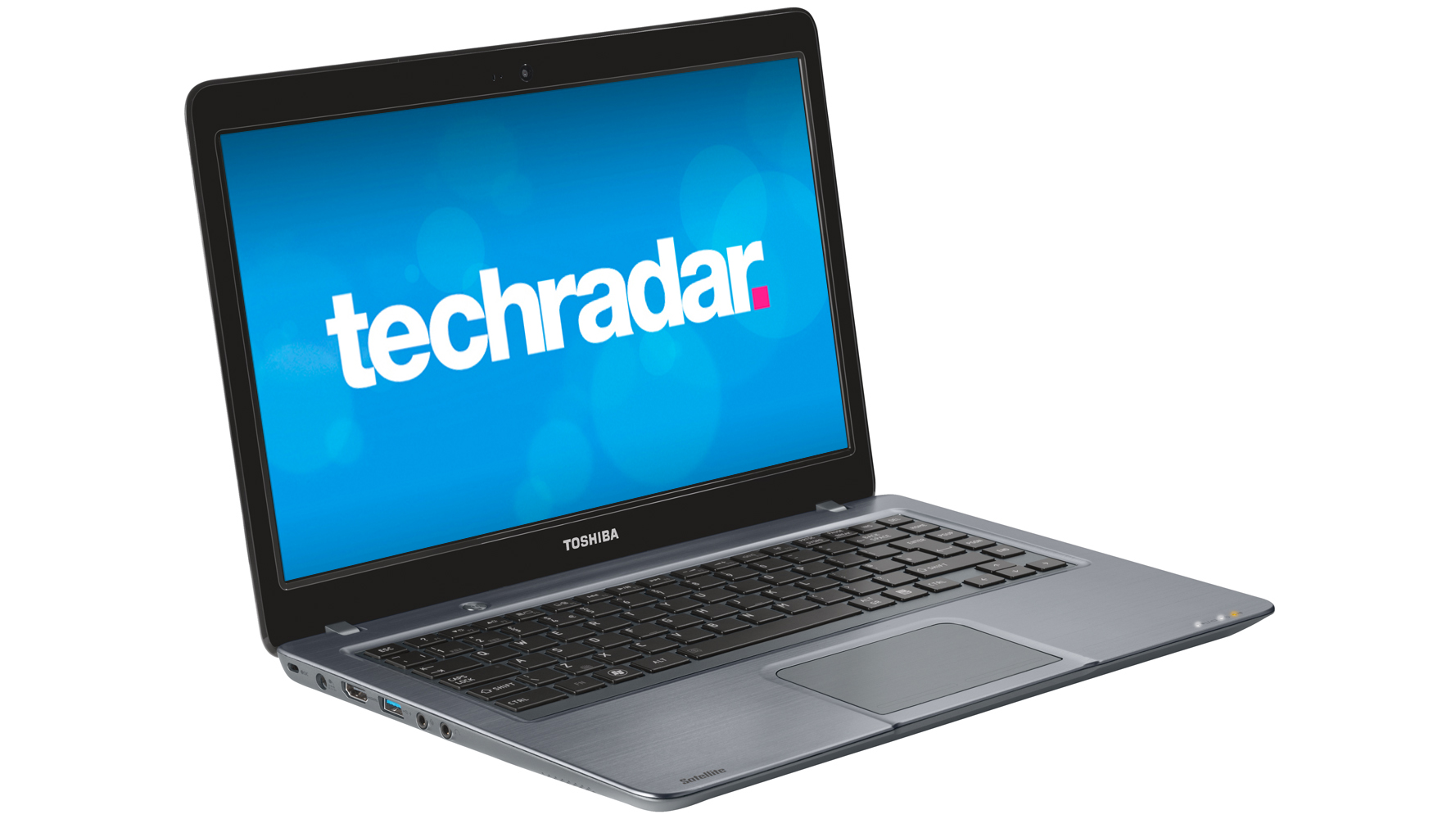Why you can trust TechRadar
Benchmarks
Cinebench 10: 9305
3D Mark 06: 5194
Battery Eater 05: 133 minutes
The fact that Intel gives a careful specification for Ultrabooks is something of a double-edged sword. Limiting what components you find in laptops has the effect of making it difficult, and even pointless, to try to differentiate too much between them. But it also means you can reliably say you'll get decent performance, even at the lower end of the price scale.
That's what we see with the Toshiba Satellite U840-10V, and it's no surprise. The Cinebench score of just under 10,000 puts it in line with other mid-range Ultrabooks, and just behind the high-end ones, such as the Asus Zenbook Prime UX31A.
You might feel the difference in particularly intensive tasks, but for general computing, the Satellite U840's CPU feels more than capable.
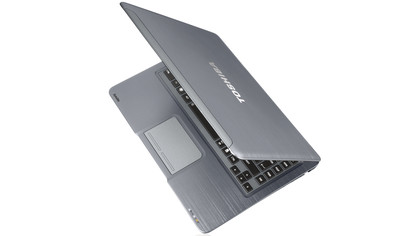
It's the same situation with graphics. The Ivy Bridge chip from Intel offers its HD 4000 GPU, meaning that mid-range gaming is well within grasp. Portal 2, for example, plays perfectly well, but Crysis 3 is likely to be out of the question. That's expected, though.
While the Core i5 CPU and 6GB of RAM combine to make applications feel snappy, it does feel like there's a bit of a bottleneck: the hard drive. When you need to access files and information from the hard drive, it does feel like seeing a graceful dancer trip over their own feet.
The Asus Zenbook Prime feels much faster across the board in operation, thanks to it having an SSD instead of a hard drive. The Satellite U840 might have a small SSD, but it only helps for Windows system operations.
Sign up to the TechRadar Pro newsletter to get all the top news, opinion, features and guidance your business needs to succeed!
As soon as you need to retrieve files you've stored, especially lots of them at once, like you would opening something like iTunes, you're back to the slow, 5,400rpm hard drive.
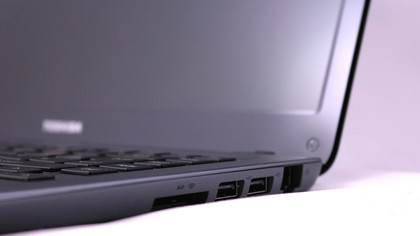
Toshiba's own Satellite Z930 actually features all-SSD storage, and it's not too much more money - though still enough to make you pause. There's also the difference in capacity, of course - this offers 500GB, while the Z930 only offers 128GB.
It's a balance, but there's no getting away from the fact that the Toshiba Satellite U840-10V's HDD does hold it back from feeling as slick as Ultrabooks should all the time.
However, it does manage to be as fast as you'd expect when turning on or coming back from standby - the longest we had to wait was around two seconds. We've got no complaints from that perspective.
The screen feels like another area where sacrifices have had to be made for the price. The resolution of 1366 x 768 isn't surprising, but at this size, it does leave text and images looking visibly blocky.
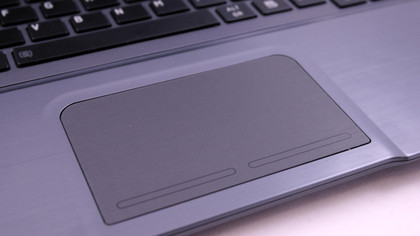
It also suffers from below-average viewing angles, especially when it comes to height - you can very quickly find it difficult to see thin text. Even at a good viewing angle, it's not particularly vibrant, though colours do look reasonably natural. It's decent when it comes to brightness, but black levels are fairly weak.
Battery life is a particular disappointment, clocking in at a lowly 133 minutes in our benchmark. Again, we look to Toshiba's own Satellite Z930 as an example of what we're hoping for, since that clocked 210 minutes. The Asus Zenbook UX32A scored 208 minutes. That's what we consider normal for an Ultrabook. The Toshiba Satellite U840-10V only manages two thirds of that.
The keyboard is backlit, which is always nice to see, but that's the nicest thing we have to say about it, really. We're not crazy about the layout, with the likes of Page Up/Down, Home and End on the far right, where you'd expect Backspace, Enter and Shift to be. But you could get used to that.
The main problem is that it offers a pathetic lack of feedback. There's very little travel in the keys, their movement is soft and they're very quiet, which all combine to mean it's hard to tell if you've actually pressed one.
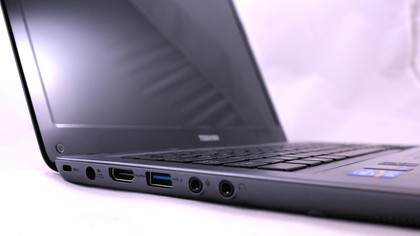
The spacing and size of them is fine, yet you're still not sure if you're typing correctly.
If this was a super-thin laptop, we might understand there not being space for good key travel, but it's not exactly the most svelte Ultrabook around, or the lightest.
We found the trackpad to be fairly decent, though not quite a home run, still. Multi-touch gestures work well on it, including pinching and two-finger scrolling, and sensitivity is good.
Clicking is shallow (echoing the keyboard), but tap-to-click is turned on by default, and doesn't have the over-sensitivity problems we've had on other trackpads, so was our preferred way of getting around Windows.
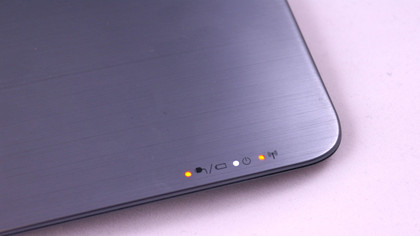
Our only other little niggle was the lights on the front of the chassis, which are needlessly bright and distracting.
We'll end on a high, though, by noting that while the speakers aren't of knock-out quality, the fact that they're stereo and on each side of the laptop does make them more immersive.
